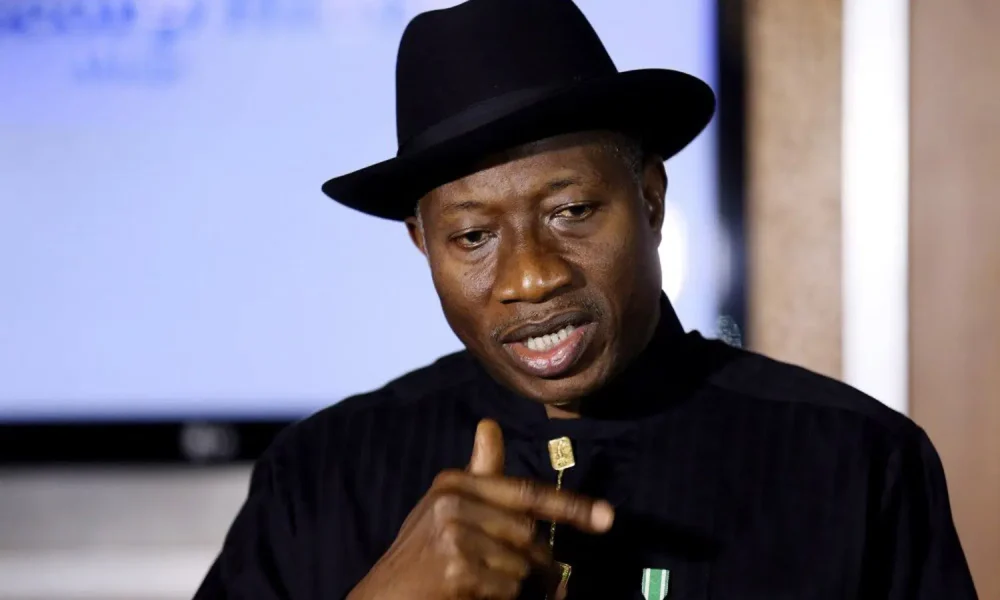National
Card Reader Rejected Me, My Wife, And Mother In 2015 – Jonathan
By Benjamin ABioye

Former Nigerian President Goodluck Jonathan has shared his experience during the 2015 general elections, revealing how the card reader rejected him, his wife, and his mother when they tried to vote.
Jonathan lost the election to his successor, Muhammadu Buhari. At that time, the Independent National Electoral Commission (INEC) was led by Prof. Attahiru Jega.
Speaking at the YIAGA Africa Reflection Conference on Democratic Elections in West Africa in Abuja on Tuesday, Jonathan explained how the card reader nearly caused a major crisis in the country.
Jonathan emphasized that the credibility of elections depends largely on how electoral bodies and security forces handle the process. He stressed the need for independent and non-partisan institutions to ensure free and fair elections.
“Strengthen Electoral Institutions: Independent and impartial electoral commissions as well as non-partisan security operatives are the cornerstone of credible elections. We must invest in building the capacity of these institutions and safeguarding their independence from political interference,” Jonathan said.
He also pointed out that two key agencies—the electoral commission and the police—play the most important roles in determining the success or failure of any election.
“The stability of a democracy is strongly tied to the way its elections are conducted and policed. If elections are not properly managed by security personnel who must be fair and just, the credibility of the electoral process and, by extension, the legitimacy of governance, could be undermined,” he added.
Jonathan recalled how the introduction of the card reader by INEC led to a major issue during the election.
“When Jega was there, he introduced the card reader, but during the election, the card reader rejected me and almost set the country ablaze. Because the card reader rejected me, rejected my wife, rejected my mother,” he said.
Despite this challenge, he acknowledged the importance of technology in improving elections across West Africa.
Jonathan praised the electoral process in some African countries, particularly highlighting improvements in Liberia, Senegal, and Ghana. He noted that voter participation in these nations had increased, showing strong public interest in democracy.
“It must be stated that high voter turnout in Liberia, Senegal, and Ghana, as well as the official transition of power in these countries, demonstrated public enthusiasm for democratic participation and consolidation,” he said.
He specifically praised Senegal’s recent elections, calling it one of the best he had observed in Africa.
Former INEC chairman, Prof. Attahiru Jega, also spoke at the conference. He acknowledged concerns about the decline of democracy in the region but emphasized that citizens still desire accountable and representative governance.
“In spite of the worrisome evidence of backsliding of democratic progress in the West African region, there remains a substantial appetite among citizens for representative and accountable democratic government,” Jega stated.
He urged citizens, civil society groups, and political actors to work together to ensure credible elections and hold leaders accountable.
“Electing good representatives in governance and holding them to account would make government more responsible and responsive to the needs and aspirations of citizens for societal progress and socio-economic development,” he said.
Jega acknowledged that while challenges remain, there has been progress in strengthening independent election management bodies in West Africa.
Yiaga Africa’s Executive Director, Samson Itodo, also spoke at the event, stating that the conference provided a platform for stakeholders to discuss electoral reforms and ways to improve elections in the region.
He explained that the discussions aimed to analyze the 2024 elections and highlight key challenges and opportunities for making future elections more transparent and credible.
Send Us A Press Statement Advertise With Us Contact Us
And For More Nigerian News Visit GWG.NG